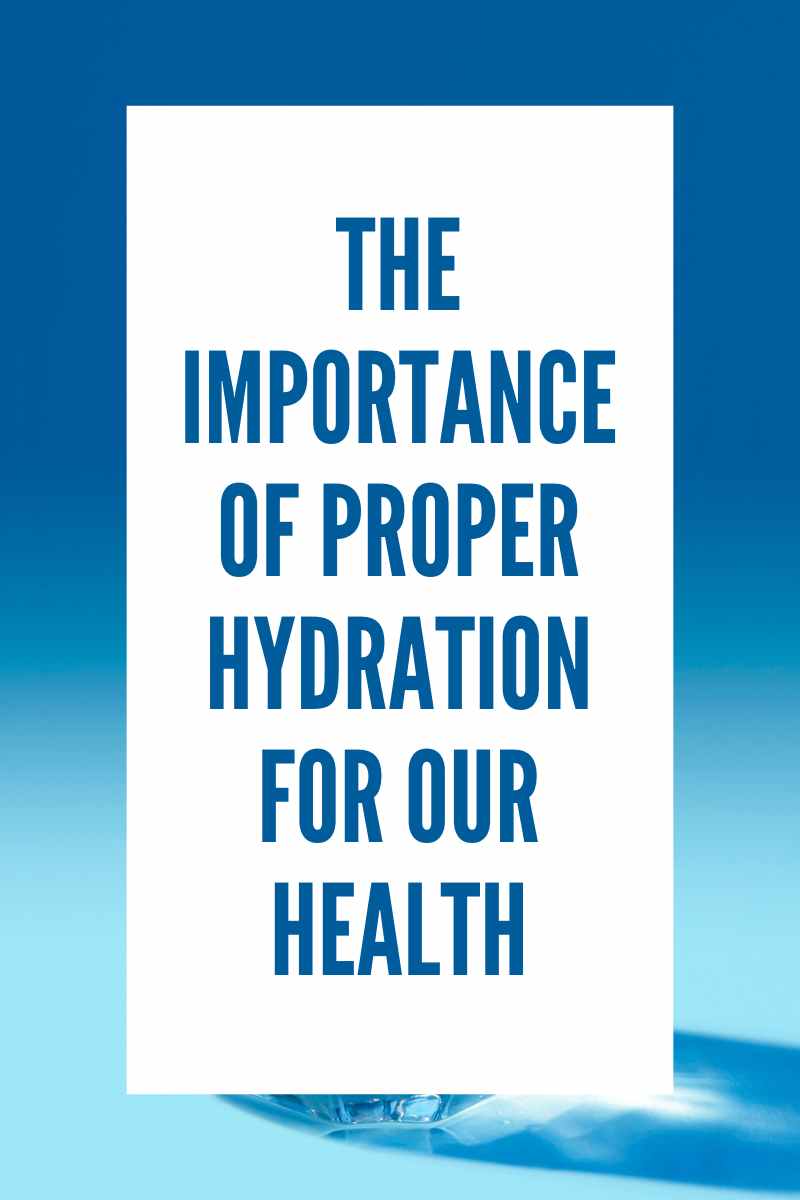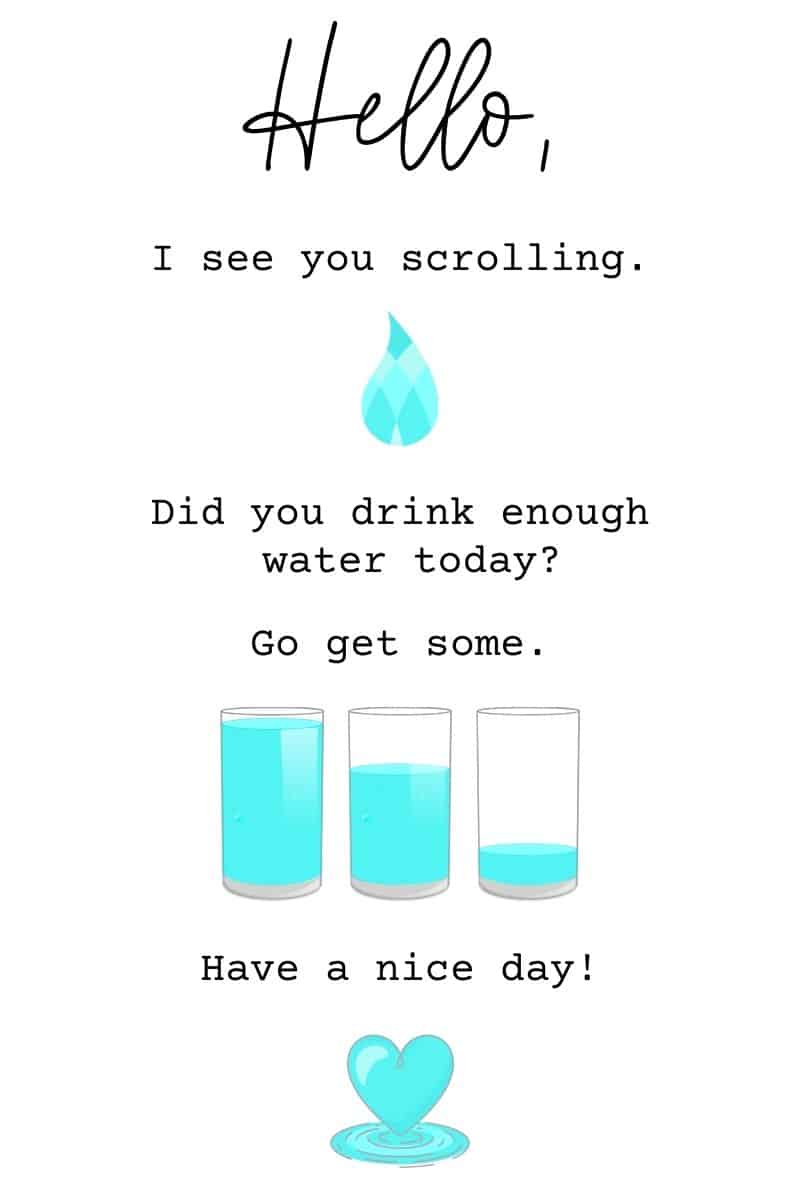Can Proper Hydration Accelerate Your Weight Loss Journey?
Have you found the path to sustainable weight loss more challenging than expected? You may be surprised to learn that the pathway to unlocking your weight loss potential may be as straightforward as staying well-hydrated.
Water is more than a simple thirst quencher; it plays a vital role in various bodily functions, including metabolism and appetite regulation. When your body is thoroughly hydrated, your metabolism functions efficiently, aiding in calorie burning.
Continue reading to discover the untapped potential of proper hydration in accelerating your weight loss journey.

Hydration: The Basics
Hydrating your body is vital for maintaining overall health. Your body is composed of about 60% water, and every cell, tissue, and organ relies on it to function correctly.
Water is crucial for regulating body temperature, lubricating joints, and aiding digestion. It’s also essential for transporting nutrients and oxygen to cells and removing waste products. Dehydration, or insufficient water, can lead to fatigue, dizziness, and even serious health issues.
Hydration and Weight Loss: The Fundamental Aspects
Unlock the secrets to effective weight loss through proper hydration. Explore the key aspects of hydration’s impact on metabolism and appetite regulation for a healthier and slimmer you.
Hydration and Metabolism
Metabolism is the bodily process that converts food into energy, with water playing a pivotal role in this conversion. When you stay well-hydrated, your metabolic rate tends to increase, meaning your body burns calories more efficiently.
Drinking water also helps influence thermogenesis, a process where your body generates heat and energy from digesting food. This result indicates that drinking enough water gives your metabolism a gentle nudge to function at its optimal level, potentially aiding in weight loss.

Appetite Regulation
Our bodies can often mistake thirst for hunger, leading us to consume unnecessary calories that are counterproductive to weight loss. By staying adequately hydrated, you can better differentiate between thirst and hunger signals, helping you make healthier food choices.
Water takes up space in your stomach, creating a feeling of fullness. Drinking a full glass of water before meals may help you eat smaller portions and reduce your overall caloric intake.
Water Retention and Weight Loss
Water retention occurs when excess fluid builds up in body tissues. It leads to bloating and weight fluctuations. Contrary to popular belief, hydrating yourself can actually help reduce water retention. When your body senses a consistent and adequate intake of water, it becomes less likely to hold onto excess fluids.
Conversely, dehydration prompts your body to retain water as a survival mechanism, contributing to bloating. Reducing your salt consumption is another key strategy to combat water retention because high sodium levels can cause your body to retain water, leading to swelling and discomfort.
With a balanced and hydrated state, you signal to your body that hoarding water is unnecessary, promoting a more natural environment for sustainable weight loss.
Practical Tips for Effective Hydration for Weight Loss
Ensuring comprehensive hydration is a cornerstone for successful weight loss. Here are practical tips to help you stay well-hydrated along your way:
- Set a Daily Water Goal: Adults should aim to drink at least 8 cups (64 ounces) of water per day, with necessary adjustments made based on your activity level, climate, and individual needs.
- Divide Water Intake Throughout the Day: Rather than trying to consume large amounts at once, spread your water intake evenly throughout the day. This balanced delivery helps maintain consistent hydration levels.
- Natural Flavored Water: If the taste of plain water is unappealing, you can make infusions featuring natural flavors like lemon, cucumber, or mint. An additional flavor boost can make hydration more enjoyable and encourage regular intake.
- Monitor Urine Color: One way to gauge hydration is to check the color of your urine. Light yellow or pale straw suggests adequate hydration, while a darker yellow may indicate dehydration.
- Include Water-Rich Foods Into Your Regimen: Incorporating fruits and vegetables with high water content into your diet, such as watermelon, cucumber, and celery, can contribute to your overall hydration levels and provide essential nutrients.
- Avoid Sugary Beverages: Minimize your intake of sugary drinks like sodas and sports drinks, as they can add unnecessary calories and hinder weight loss progress.
- Consider Semaglutide in Seattle: Semaglutide, a medication known for its weight loss benefits, may be discussed as part of a comprehensive weight management plan. Seek guidance from the best healthcare providers in Seattle for personalized advice on incorporating semaglutide into your weight loss strategy. Semaglutide’s impact on weight loss efforts is amplified when utilized alongside healthy lifestyle modifications like regular exercise and a balanced nutritional program.
Conclusion
Proper hydration emerges as a formidable ally in your weight loss endeavors. By understanding the links between hydration, metabolism, and appetite regulation, you empower your body to operate at its peak efficiency.
Consistent water intake may provide aid in calorie burning, curbing overeating, and promoting overall well-being. Embrace the simplicity of staying well-hydrated as a fundamental strategy on your weight loss journey. Proper hydration encompasses more than merely drinking water; it’s about unlocking your body’s potential for sustained and effective weight management.
